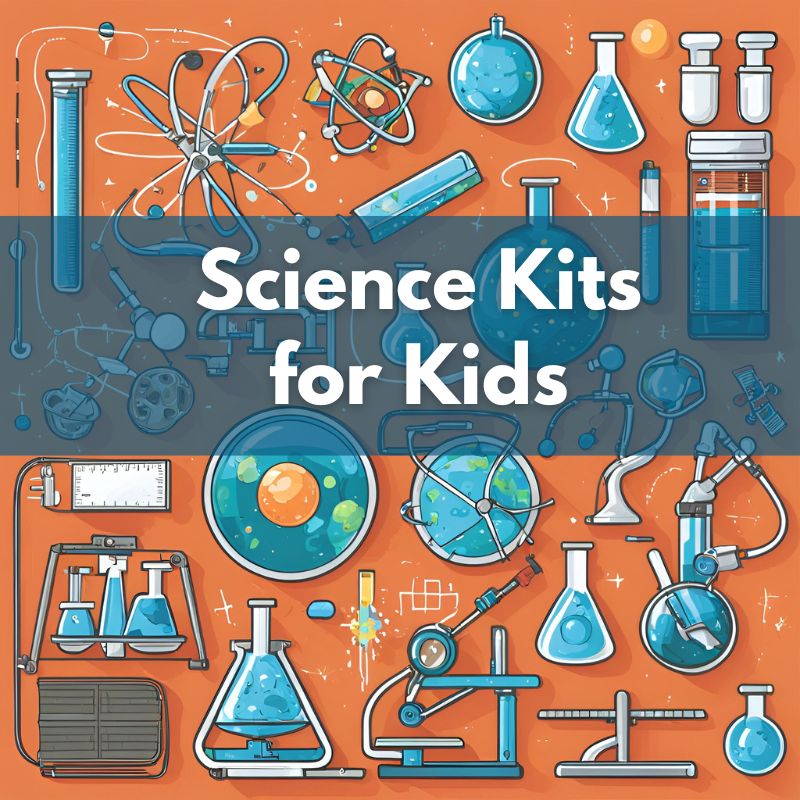
The Ultimate Guide to Science Kits for Kids: Inspiring Young Minds
Introduction to Science Kits for Kids Science kits are a fantastic way to introduce children to the wonders of science. These kits provide hands-on learning experiences that make science fun and accessible, fostering curiosity and a love for exploration from an early age.
Why Science Kits Are Important
- Hands-On Learning: Science kits allow children to engage directly with scientific concepts, turning abstract ideas into tangible experiences.
- Encourages Curiosity: Kids naturally love to explore and experiment. Science kits tap into this curiosity, encouraging them to ask questions, test hypotheses, and discover new things.
- Builds Critical Thinking Skills: By following instructions, making predictions, and observing outcomes, children develop important problem-solving and critical thinking skills.
Types of Science Kits for Kids
- Chemistry Kits: These kits allow kids to mix chemicals and observe reactions, safely introducing them to the basics of chemistry. They might include experiments like creating a volcano, making slime, or growing crystals.
- Biology Kits: Perfect for budding biologists, these kits often include tools like microscopes, slides, and specimen samples, enabling kids to explore the natural world up close.
- Physics Kits: These kits help children understand the principles of physics through fun experiments involving magnetism, electricity, and simple machines. Activities might include building circuits, launching rockets, or exploring the laws of motion.
- Robotics and Engineering Kits: These kits allow kids to build robots, design structures, and understand the basics of coding. They are great for developing engineering skills and understanding how technology works.
- Earth and Space Science Kits: Ideal for young astronomers or geologists, these kits might include activities like building a model of the solar system, growing rocks, or studying weather patterns.
Choosing the Right Science Kit When selecting a science kit, consider your child’s age, interests, and skill level. Look for kits that offer a range of experiments and come with clear instructions to ensure your child can work independently or with minimal guidance.
Popular Science Kits for Kids
- National Geographic Science Kits: Known for their high-quality educational materials, National Geographic offers a range of science kits that cover topics like geology, chemistry, and paleontology.
- Thames & Kosmos Kits: These kits are designed to engage kids with complex scientific concepts through fun and easy-to-understand experiments.
- KiwiCo STEM Kits: KiwiCo offers monthly subscription boxes that include STEM projects, catering to different age groups and interests.
Tips for Maximizing the Learning Experience
- Supervise Younger Children: While many science kits are designed to be safe, it’s important to supervise younger kids, especially when using kits involving chemicals or small parts.
- Encourage Exploration: Allow your child to experiment beyond the instructions. Let them make predictions, observe what happens, and come up with their own conclusions.
- Discuss the Science: Take time to talk about the science behind the experiments. Explain the concepts in simple terms, and encourage your child to ask questions and think critically.
Benefits of Using Science Kits
- Boosts Academic Performance: Engaging with science kits can improve understanding and retention of scientific concepts, giving children a head start in school.
- Develops Lifelong Skills: The problem-solving, critical thinking, and creative skills gained through using science kits are valuable throughout life.
- Fosters a Love for Learning: Science kits make learning fun, helping children develop a positive attitude towards education and a lifelong love for discovery.
Conclusion Science kits for kids are a powerful tool for making learning interactive, enjoyable, and educational. Whether your child is interested in chemistry, biology, physics, or engineering, there’s a science kit out there to inspire and engage them. These kits not only introduce children to the fascinating world of science but also help develop critical thinking and problem-solving skills that will benefit them throughout their lives.
For more educational tools and tips, visit News Gutter.
